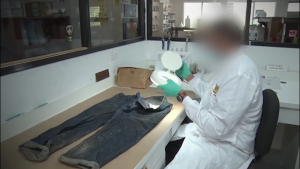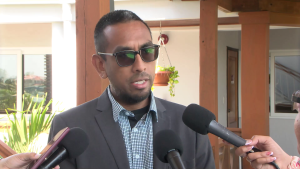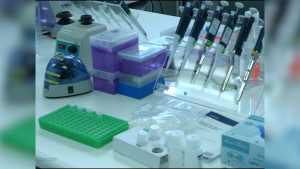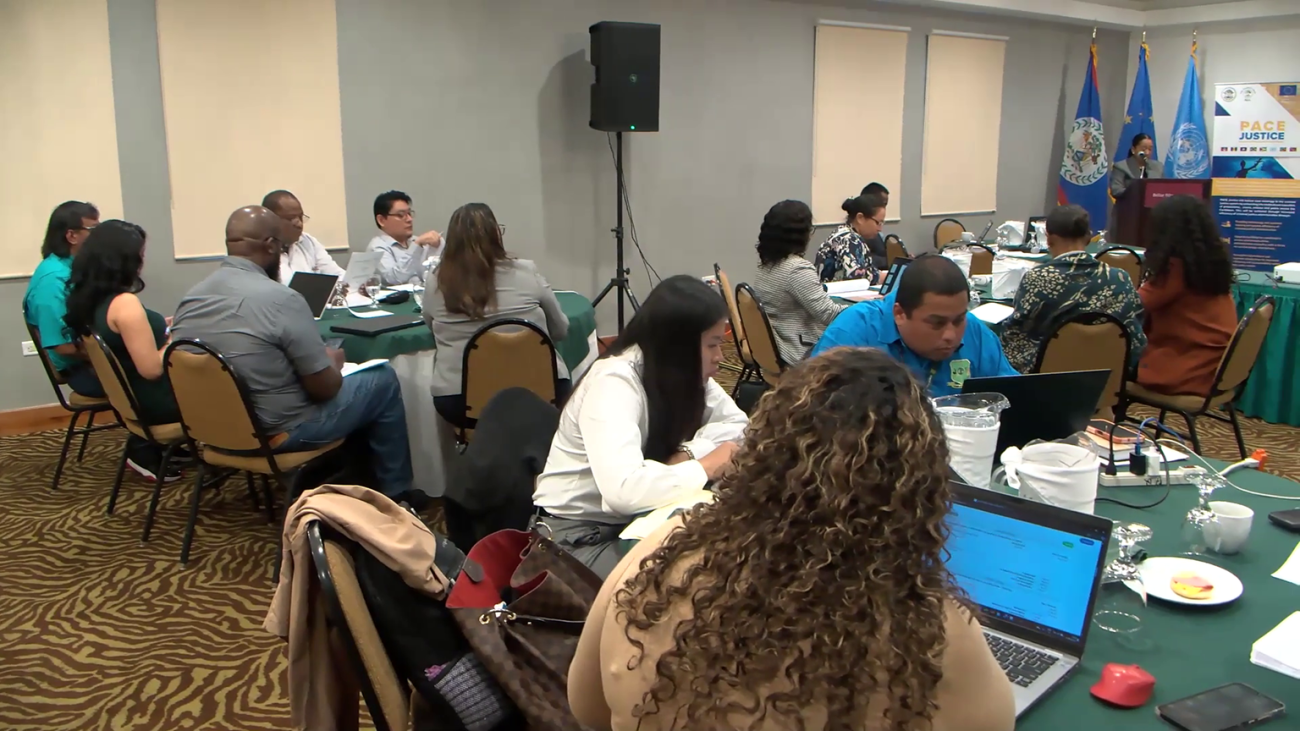New DNA Legislation to Plug Loopholes in Justice System
A new proposed DNA law aims to make cases involving scientific evidence clearer by setting rules for collecting, filing, and using DNA evidence to prosecute suspects. Today, a draft of this legislation was shown to key groups. This draft would let the court decide when a suspect must provide DNA samples for testing in criminal cases. The United Nations Development Program, which held consultations earlier this year, created the draft bill and hosted today’s meeting with forensic experts, prosecutors, police, and the Ministry of Health. News Five’s Marion Ali has the story.
 Marion Ali, Reporting
Marion Ali, Reporting
Today, key groups from the justice system met to review a proposed draft law focused on DNA evidence. According to UNDP Representative Amilin Mendez, the goal of the bill is to improve how DNA evidence is collected, filed, and used.

Amilin Mendez
Amilin Mendez, Representative, U.N.D.P.
“With D.N.A legislation in place, it embodies the National Forensic Science Services to be able to create a D.N.A database. What does that mean then for you? If you have a matter on hand, if you’re the victim, you’ll be able to get justice in a more timely manner. If you’re a suspected person of a crime and your D.N.A does not match, you would not have to be on remand because it’s clear that you’re not guilty of any of these crimes.”
The UNDP has been a long-time partner of the National Forensic Science Services. In 2024, the U.N. agency helped upgrade the lab’s information management system, making the evidence process digital. Executive Director Gian Cho explained how the system will work according to international standards once the law is passed by the end of this year.

Gian Cho
Gian Cho, Executive Director, Belize National Forensic Science Service
“When you collect people’s genetic data, when you store it, when you search it, we need to make sure that we have regulations or laws in place that governs how that’s used. So how a national D.N.A. database is established, how D.N.A. samples are collected from individuals suspected of committing offenses in a manner that respects their bodily integrity, their privacy, their dignity, how searches of that database is conducted, who has access to the database, what we do with any matches that come from the database, who are authorized to enter profiles into a database, how profiles are generated – all of these requirements to ensure that the safeguard of human genetic data, the standards of searching and how we determine a match are in line with the international requirements and what we know other countries have in their legislation as well as oversight for such a database.”
 Cho explained that even though the system will be in place, for investigators to get certain DNA samples from suspects, a judge would have to decide whether the sample will be given by force. Cho emphasized that it’s crucial to ensure people’s constitutional rights are respected throughout the process.
Cho explained that even though the system will be in place, for investigators to get certain DNA samples from suspects, a judge would have to decide whether the sample will be given by force. Cho emphasized that it’s crucial to ensure people’s constitutional rights are respected throughout the process.
Gian Cho
“The process or the procedure to obtain a D.N.A. sample from an individual, when consent is not given by the individual, what would be the processes that the authorities follow would be to obtain a court order. Once certain thresholds are met, the investigator – a senior rank inspector or above would have to issue or make the request to a magistrate to issue a court order to collect a D.N.A. sample the person does not give consent.”
 Ultra-sensitive issues, such as how minors are treated, whether they are the victim or the perpetrator, are also covered in the legislation.
Ultra-sensitive issues, such as how minors are treated, whether they are the victim or the perpetrator, are also covered in the legislation.
Gian Cho
“When minors are victims or when minors are suspects or when appearance of minors might be involved we have to look at court orders given individual. And the bill speaks all of those different circumstances when a court order would be needed, or what would be considered reasonable cause to obtain a court order, what would be instances where reasonable force can be used to obtain the D.N.A. sample and in most instances, it would be a cheek swab that is obtained.”
It’s still unclear if this new legislation will boost conviction rates. The reform of the justice system through this bill is just one part of a larger project called pH Justice, supported by the UNDP and funded by the European Union, with a budget of over three million dollars. This project also included digitizing the Magistrates’ and High Courts. Once the relevant parties agree on the draft bill’s contents, it will be presented to Cabinet for approval before going to the National Assembly. Marion Ali for News Five.







Facebook Comments